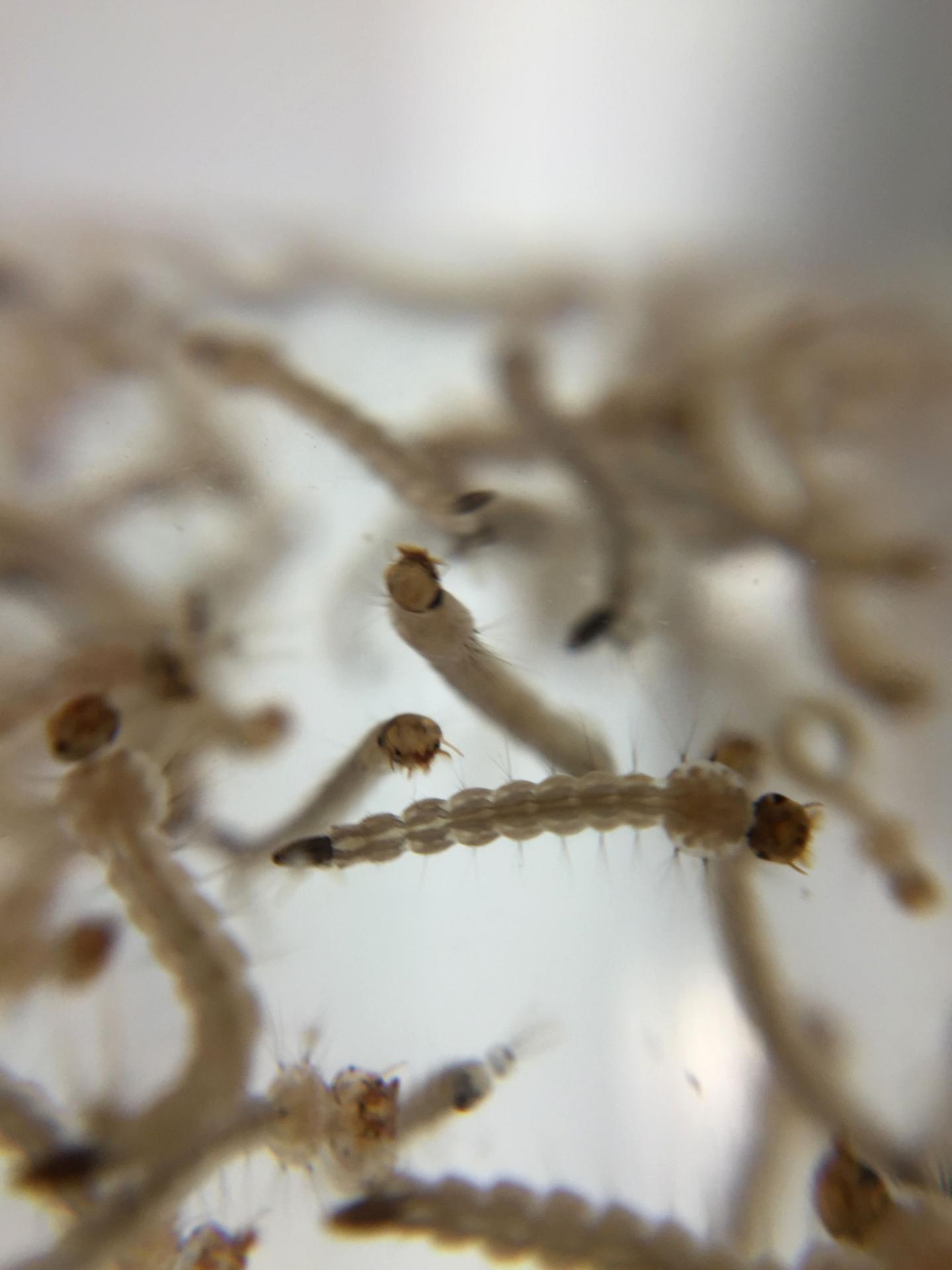
Credit: NIAID (CC BY 2.0, 2016)
Mosquito-borne viruses, such as dengue, chikungunya, and Zika, already threaten over a billion people globally. A study published on March 28, 2019, in PLOS Neglected Tropical Diseases predicts that climate change and rising global temperatures will lead to both increased and new exposures to humans of diseases carried by mosquito vectors Aedes aegypti and Ae. albopictus. The most extreme instances of transmission are predicted to occur at intermediate climate change scenarios.
Sadie Ryan of the University of Florida and her colleagues forecasted climate change impact on virus-carrying mosquitos by adapting a previously developed Bayesian transmission model. The researchers’ adaptation of the model allowed them to track shifting weather warming scenarios to determine where mosquitos will migrate and how the number of disease transmissions will change over the next century.
Ae. aegypti is estimated to have a higher thermal optimum for transmission than Ae. albopictus (29? Celsius vs. 26? C). The researchers’ results show that when the mosquito range shifts within optimal temperature ranges for transmission (21.3 – 34.0° C for Ae. aegypti; 19.9 – 29.4° C for Ae. albopictus), we can expect poleward shifts in Aedes-borne virus distributions. While disease transmission to humans is predicted to increase in Europe, transmission from Ae. albopictus may decrease in southeast Asia and west Africa when the researchers’ worst-case scenario is applied. Counter-intuitively, a middle-of-the-road temperature increase could produce the greatest expansion in viral transmission by Ae. albopictus, as opposed to hypotheses that predict a paralleled increase in temperature with illness–a model that predicts a warmer, sicker world.
“The dynamics of mosquito-borne illnesses are climate-driven, and current work suggests that climate change will dramatically increase the potential for expansion and intensification of Aedes-borne virus transmission within the next century,” the authors note.
###
In your coverage please use this URL to provide access to the freely available paper: http://journals.
Citation: Ryan SJ, Carlson CJ, Mordecai EA, Johnson LR (2019) Global expansion and redistribution of Aedes-borne virus transmission risk with climate change. PLOS Neglected Tropical Diseases 13(3): e0007213. https:/
Funding: This work was funded by the National Science Foundation (DEB-1518681 to SJR, LRJ, EAM, NSF DEB-1641145 to SJR, and DEB-1640780 to EAM), and CDC grant 1U01CK000510-01: Southeastern Regional Center of Excellence in Vector-Borne Diseases: the Gateway Program, to SJR. This publication was supported by the Cooperative Agreement Number above from the Centers for Disease Control and Prevention. Its contents are solely the responsibility of the authors and do not necessarily represent the official views of the Centers for Disease Control and Prevention. Support was also provided by the Stanford Woods Institute for the Environment (https:// woods.stanford.edu/research/environmental- venture-projects), and the Stanford Center for Innovation in Global Health. . Van Savage, Naveed Heydari, Jason Rohr, Matthew Thomas, and Marta Shocket provided helpful discussions on modeling approaches. The funders had no role in study design, data collection and analysis, decision to publish, or preparation of the manuscript.
Competing Interests: The authors declare that no competing interests exist.
Media Contact
Sadie Ryan
[email protected]
Related Journal Article
http://dx.




